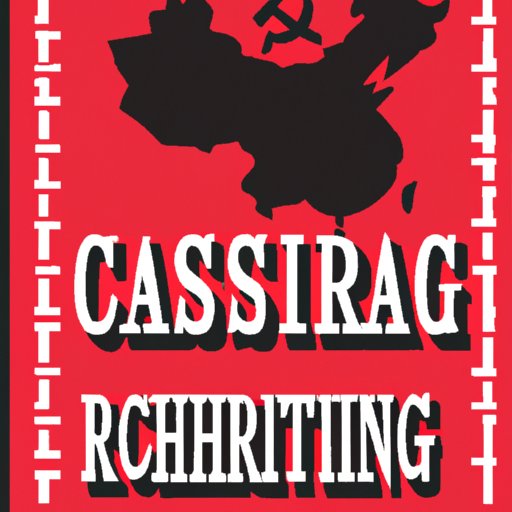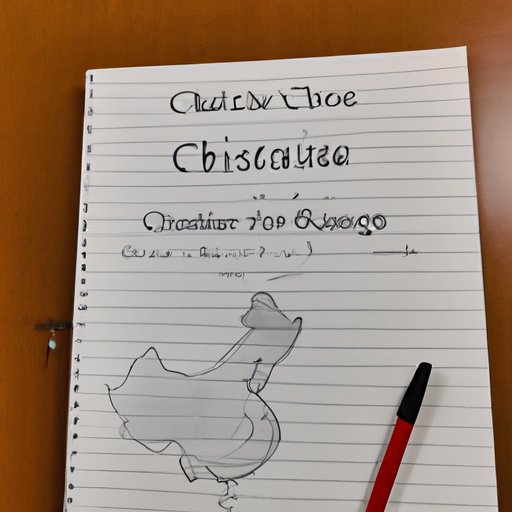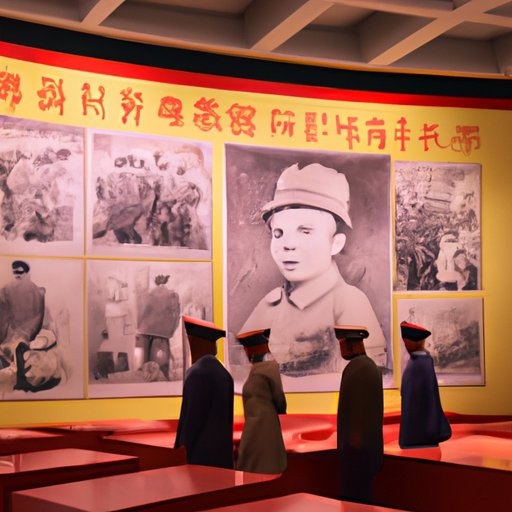Introduction
The Chinese Cultural Revolution was one of the most significant events in modern Chinese history. It was a period of great upheaval and chaos which lasted from 1966 to 1976, during which time all aspects of Chinese life were affected. The Revolution was initiated by Mao Zedong, who sought to eradicate the “four olds” – old customs, old culture, old habits and old ideas. This paper will explore the causes and consequences of the Chinese Cultural Revolution, as well as its legacy and how it compares to other revolutions in history.
Examining the Causes and Consequences of the Chinese Cultural Revolution
The Chinese Cultural Revolution was primarily caused by the policies of Mao Zedong, the leader of the Chinese Communist Party. In the 1950s, Mao implemented a series of radical economic reforms known as the Great Leap Forward. These reforms were intended to rapidly industrialize the country and make China a global superpower. However, the reforms failed and resulted in widespread famine, poverty and death.
The effects of the Chinese Cultural Revolution were far-reaching and long-lasting. On a political level, it led to the consolidation of power by the Communist Party and the strengthening of its control over the Chinese people. Economically, the Revolution caused a decline in agricultural production and an increase in unemployment. Socially, it resulted in increased censorship, suppression of dissent and the destruction of many traditional Chinese cultural practices.
Exploring the Events that Occurred During the Chinese Cultural Revolution
During the Chinese Cultural Revolution, several important events occurred. The first was the formation of the Red Guard movement, an organization of young people who sought to promote Mao’s ideology and enforce his policies. The Red Guard carried out violent purges of those deemed to be enemies of the state, including intellectuals, religious leaders and political dissidents.
Another key event was the cultural purges, which targeted traditional Chinese arts, literature, religion and philosophy. Many books were burned, museums were closed and artworks were destroyed. The purges also extended to music, with many popular songs being banned or rewritten to reflect Mao’s views.
Finally, the Chinese Cultural Revolution culminated in the downfall of the Gang of Four, a group of Communist Party officials who had been closely associated with Mao. Their arrest marked the end of the Revolution and allowed for the gradual introduction of more liberal policies.

Investigating the Impact of the Chinese Cultural Revolution on Chinese Society
The Chinese Cultural Revolution had a profound impact on Chinese society. Politically, it resulted in the further entrenchment of the Communist Party’s power and the suppression of dissent. Economically, the Revolution caused a decline in agricultural production and an increase in unemployment. Socially, it led to increased censorship and the destruction of many traditional Chinese cultural practices.
The Revolution also had a lasting effect on the education system. Schools were closed and universities were replaced by “revolutionary schools” which taught only Mao’s ideology. This resulted in a generation of students who were exposed only to a single view of the world.

Analyzing How the Chinese Cultural Revolution Changed the Course of Chinese History
The Chinese Cultural Revolution had a major impact on the course of Chinese history. On a political level, it led to the consolidation of power by the Communist Party and the strengthening of its control over the Chinese people. Long-term changes in government included the introduction of market reforms, the expansion of private enterprise and the opening up of China to foreign investment.
In terms of education, the Revolution caused a shift away from traditional Confucian values and towards Maoist thought. Schools and universities were restructured to teach only Mao’s ideology and this has had a lasting impact on the way in which Chinese citizens view the world. Finally, the Chinese Cultural Revolution had a major impact on foreign relations, with China becoming increasingly isolated from the rest of the world.

Uncovering the Legacy of the Chinese Cultural Revolution
The legacy of the Chinese Cultural Revolution is complex and controversial. On the one hand, it brought about positive changes such as increased gender equality and improved access to education and healthcare. On the other hand, it led to widespread suffering and the suppression of dissent.
In terms of its long-term effects, the Chinese Cultural Revolution can be seen as both a success and a failure. On the one hand, it brought about changes which have had a lasting impact on Chinese society, such as the consolidation of power by the Communist Party and the restructuring of the education system. On the other hand, it caused immense suffering and the destruction of many traditional Chinese cultural practices.
Comparing and Contrasting the Chinese Cultural Revolution to Other Revolutions in History
The Chinese Cultural Revolution can be compared and contrasted to other revolutions in history. For example, it shares certain similarities with the French Revolution, such as the overthrow of an oppressive regime and the introduction of more liberal policies. Similarly, it shares some similarities with the Russian Revolution, such as the emergence of a totalitarian state and the suppression of dissent.
However, the Chinese Cultural Revolution differs from other revolutions in some key respects. Unlike the Cuban or Iranian revolutions, it was not motivated by anti-imperialist sentiment or a desire to free the country from foreign influence. Furthermore, unlike the Russian Revolution, it was not motivated by the desire to overthrow the capitalist system.
Conclusion
The Chinese Cultural Revolution was a period of immense upheaval and chaos which had a profound impact on Chinese society and changed the course of Chinese history. It was caused by the policies of Mao Zedong, who sought to eradicate the “four olds” – old customs, old culture, old habits and old ideas. During the Revolution, several important events occurred, including the formation of the Red Guard movement and the downfall of the Gang of Four. The Revolution had far-reaching consequences, both positive and negative, which are still felt today. Finally, it can be compared and contrasted to other revolutions in history, such as the French, Russian, Cuban and Iranian revolutions.
(Note: Is this article not meeting your expectations? Do you have knowledge or insights to share? Unlock new opportunities and expand your reach by joining our authors team. Click Registration to join us and share your expertise with our readers.)
